The 6 Most Ominous Trends in Video Games

Our generation will be remembered for our video games. Every generation is remembered by its popular art; when you think of the 60s you think of Woodstock and hippie music. When you think of the 80s, you think of Miami Vice and the birth of music video. So when your grandchildren think of the 2010s, what will they picture in their minds? Let's put it this way:
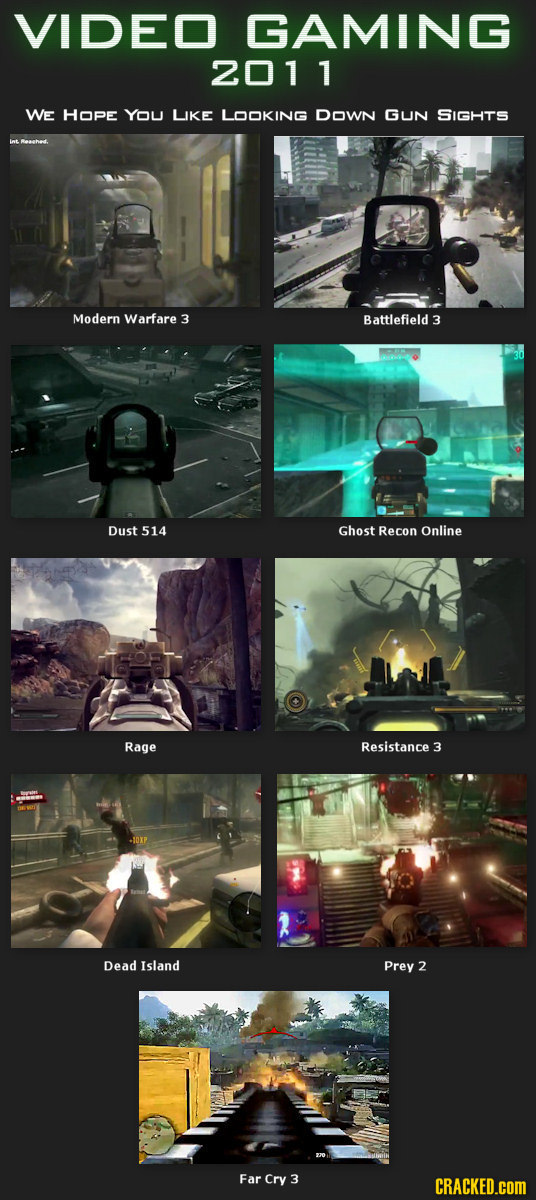
Seriously. God help us.
Regular readers know I made a similar graphic based on last year's games. I'm thinking things have not gotten better. Don't get me wrong -- I love shooting me some dudes in the head, and those private islands where you pay a fee to do it for real are incredibly expensive. But ... come on, guys. The futuristic game machines I dreamed about as a kid in 1986 have been surpassed by reality. By a factor of 10, in fact. And that is the result?
The problems with gaming go beyond the fact that every major blockbuster game coming in the next year seems to involve looking through glass sights at a terrorist or zombie. Here's what has me worried ...
(We're worried that you might not see our new Star Wars mini-series. Please click the link and make us not worry!)
The Technology is Going Backward

I remember a time when I had absolutely no worries about the future of gaming. It was a period of about four hours in 2007 when me and my friends spent a whole night playing Wii Sports Bowling.

"Gaming is saved, and the global economy ain't never gonna collapse, baby!"
It's one of the most stupidly perfect games I'd ever played -- I've still logged more hours on it than Red Dead Redemption and Dead or Alive Xtreme 2 combined.

When you buy her an in-game bikini, the FBI automatically logs you in their serial killer database.
The way it translated your movements to the game, swinging your arm with the imaginary ball rather than pushing some boring old button, was somehow more satisfying than the real thing (now that I think of it, I hate real bowling). This, I decided, was exactly what games had been trying to achieve for decades.
But more than four years later, nothing on the Wii has equaled it. The tech was perfect for bowling and that's all it was perfect for. OK, it's also nice for shooting gallery type games, but about the 10th time I was told to shake my controller to get a leech off my screen, I had a revelation:
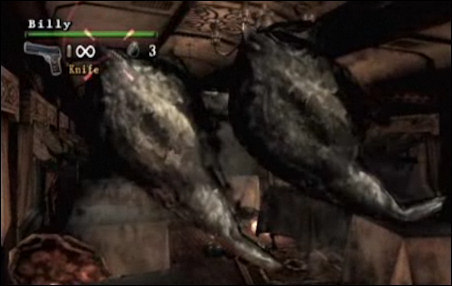
"Waaaaait a second! This is bullshit."
And in fact, the last two really big hits for the Wii (Donkey Kong Country Returns and Mario Bros Wii) scrapped motion and just had you turn the controller sideways like a very uncomfortable control pad from 1991. Now, coming up on the sixth anniversary of the Wii's debut, Microsoft is promising us the absolute nadir of video game motion controls: Star Wars Kinect.
See, the Kinect is completely button-free. You just swing your arms around. Therefore, it completely wipes out about 90 percent of your input options. Things like the ability to actually move your character. Seriously. Watch:
Because there is no stick or control pad, you literally can't navigate around the game world (you kind of slide from one fight to the next). So for most of the game, your Jedi stands there like a jackass while stormtroopers stupidly amble into your flailing lightsaber.
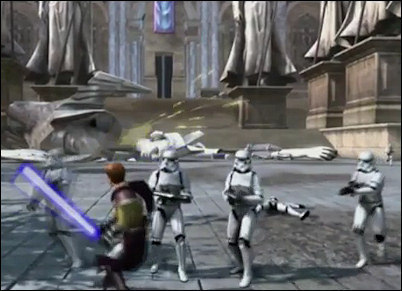
"Kill me next!"
We've been waiting for a lightsaber game since the day motion controls were invented, and this is what they give us? Fuck you! Gaming was more interactive than this in 1979!
Meanwhile, Microsoft's competitors are trying to compete with another kind of buttonless gaming: smartphones and iPads. So at the Electronics Entertainment Expo this year, Sony proudly showed how with their new system (the PS Vita). You don't need any of that complicated "button pushing" or "timing" or "skill" to make your character jump across platforms. It's as simple as pointing your finger at the next obstacle! You know, like an iPhone!
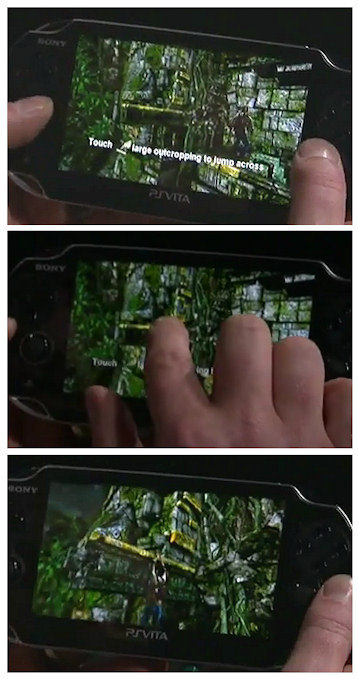
"Say, this is much easier!"
Nintendo, meanwhile, just said, "fuck it," and decided to include an iPad clone with their next home system, the Wii U:
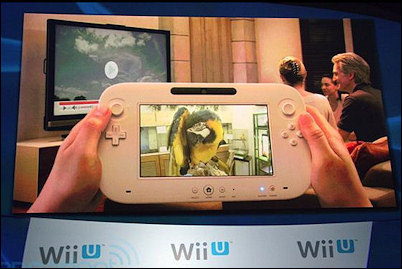
It sounds like the best of all worlds, until you realize the technology is so half-baked you can only use one of the new controllers with the console -- there'll be no such thing as multiple pads for multiplayer. Though they did make it clear that you could use the pad and a stylus to draw a dong on the face of your game characters.
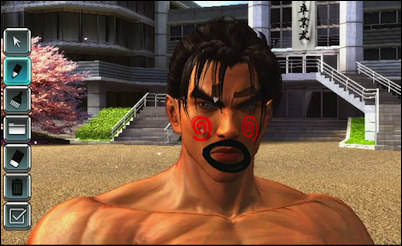
So there's that.
Hackers and DRM are Turning Gaming into a Nightmarish Clusterfuck

Imagine if every time you drove your car, you had to first check in with the car manufacturer to confirm that it's you behind the wheel. Let's say that this relies on an Internet connection, and if the connection is down, you can't drive. In many ways, gaming is already there. But more on that in a moment.
At E3, the big yearly event where game companies unveil all of their dazzling future technology and software, Sony led off with the unveiling of an amazing, cutting edge apology for their online service being down for three straight weeks. Oh, and for allowing the personal data of 77 million customers get stolen off their servers.
It will happen again. And in the future, you're not going to have the ability to just play the games offline in single player while you wait. The tethering of all games to an online account is coming. And with that will come annoyances.

"If you want a vision of the future, imagine SecuROM slapping your face with its dick -- forever." -George Orwell
The thing is, publishers ultimately want to get to the point where you're connected to their servers at every moment. This way they can continually check to make sure you have a non-pirated copy of the game and can then sell you downloadable extras and monthly subscriptions to play multiplayer. They also want you to buy all of your games via download so that you won't trade a physical copy in to GameStop (who will resell it and not give a penny to the publisher). After that, they will move to a model like OnLive, where you never get a copy of the game at all -- you simply play it off their machine, streamed over your Internet connection. For this, you pay a monthly fee, hopefully for the rest of your life.
All of this requires a constant connection. Which requires constant security. Which requires constant bullshit. Ask any PC gamer, they're already there.
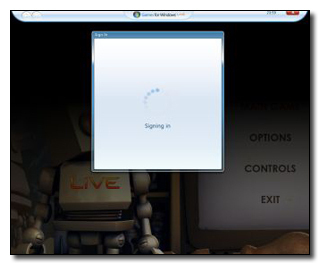
Ahhhh, the thrilling sign-in cut scene from Fuck Gamers 3.
That brings us back to the analogy of the car. Let's say you want to play Starcraft II's single player campaign. A few weeks in, you sit down to play the 20th map. At startup, it logs you into their server at battle.net and asks you for a password. If it can't make the connection, or you can't enter the password, you can't play your single-player campaign. Your only option is to start over from the beginning. And it's the same if you want to take your laptop with you and play the game on a plane or in the car or at Grandma's house.
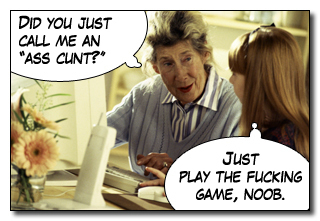
Many other games, meanwhile, won't let you play until you first set up a Games For Windows Live account and give Microsoft your contact info. This comes bundled with so many glitches and annoyances that if you go to Google right now and type "GFWL" the very first suggested result is "GFWL offline" -- people searching for a way to somehow turn that shit off.
That's the thing -- it's not just about privacy or Big Brother, it's that these online services fuck up constantly. Even before the PSN network took, well, everyone offline, you had horror stories of EA blocking somebody from playing their own single-player game, because they used offensive language on EA's message board.
I had my Xbox Live account locked (unable to make any purchases of games or videos) for 72 hours for suspicious activity. What was the activity? I bought three episodes of Battlestar: Galactica at two in the morning, then came back at 5 a.m. to buy more. What, is that the behavior of anyone other than an upstanding citizen? Were they somehow able to detect that I was nude at the time? And that I kept shouting at the television that I wanted "one of them Asian robot girls who light up red when they touch my boner"?

Whatever it was, Customer Service couldn't lift the lock, even after I called and assured them that it was me and that the purchases had been made on purpose. It was in the wake of the PSN outage, and they were erring on the side of caution. They couldn't risk Sony's nightmare.
That's your future, gamers. Take a good look at it. It will work like this:
A. Eventually, all gaming must be online in order for publishers to make money;
B. It is next to impossible to secure gamers' online data without many annoying security measures;
Therefore,
C. All future gaming will come with many annoying security measures.
Their bottom line depends on it. But that leads to a different issue ...
The New Model is Infinite Payment

The difference between the games you played as a kid and the games you'll be playing in the coming years is the difference between owning a car and having to pay for a cab every time you want to leave the house.

Or the difference between a nice Ukrainian bride and a hooker.
In the business, they talk about transforming video games from "a packaged goods model" to a "service model." So instead of buying something and taking it home to use it, you pay smaller amounts, monthly, forever.
There are several problems with this:
A. As I explained in detail here, instead of making games that explore new worlds and experiences, design becomes all about addiction and repetition. Games that are all about making the player endlessly grind for the purpose of earning items that can only be used for one thing: grinding for more items. Forever.

B. Much of what you will be charged for are things you were used to getting for free. Like the new Call of Duty series holding back some maps and features for their "elite" service, for a monthly paid subscription. This will be on top of what Microsoft already charges Xbox 360 users for online service, and the $60 you paid for the game. They're testing the boundaries of how far they can push it.
C. There will, with time, be zero reason for game companies to spend substantial money on games that can't be stretched out with multiplayer or downloadable episodes. How can they justify single-player, story-driven games? It's leaving money on the table.
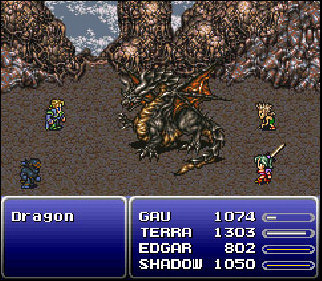
I'd still be playing Final Fantasy III if they'd sold DLC for it.
That's the point: There's nothing wrong with online multiplayer games in and of themselves, or with a publisher selling me more of a game I loved. It's just that this is going to further shrink our choices. Not every game lends itself to this kind of thing. Which brings me to the larger problem ...
We're on the Verge of Creative Bankruptcy

Let's go back to my graphic at the beginning. The reason every major game (that doesn't involve dragons) looks the same is because of the Modern Warfare series. So far we have two games and a spinoff that each took in as much money in the U.S. as Avatar. We already know what the best-selling game of 2011 will be: Modern Warfare 3, which was shown for the first time at E3.
Don't get me wrong, what they showed us was cool as shit. You're thrown right into the action, starting out under water ...
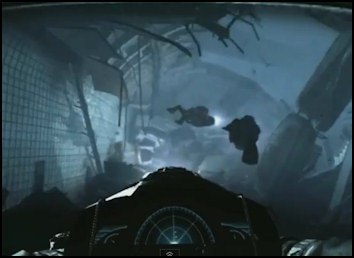
... emerging to see that, holy crap, New York is under attack!

Boats are burning in the harbor!

Look! There's Lady Liberty on the horizon, as if to remind us of what's at stake!

I can't wait to play it. But Modern Warfare 3 has some serious competition in the marketplace. Just earlier this year, maybe the best-looking console game ever made, Crysis 2, hit shelves. In the first level of that one, you're thrown right into the action, starting out under water ...
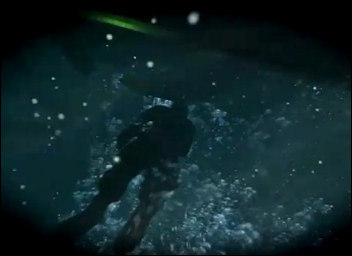
... emerging to see that, holy shit, New York is under attack!

Boats are burning in the harbor!

Look! There's Lady Liberty on the horizon, as if to remind us of what's at stake!

Don't take this the wrong way. I'm not shitting on game developers. I have friends in the industry, and they're each smarter and more talented than I am. I'm the one who wrote a novel about a man with multiple-personality disorder who, in a twist ending, finds out he was his own rapist -- I'm no one to throw stones.
But this isn't about any lack of creativity among game developers, artists, writers or anyone else. It's about money, and the fact that the market has trapped games in a fucking creative coffin (and developers will tell you the same). Everybody complains about sequels and reboots in Hollywood, but holy shit, it's nothing compared to what we have in gaming right now.
For instance, each of the Big Three game console makers took the stage at E3 to show off their biggest games of the upcoming year. Microsoft led off with the aforementioned Modern Warfare 3, which is really Call of Duty 8 (game makers like to switch up the sequel titles so the digits don't get ridiculous). Next was Tomb Raider 10 (rebooted as Tomb Raider). Then we had Mass Effect 3, and Ghost Recon 11 (titled Ghost Recon: Future Soldier). This was followed by Gears of War 3, Forza 4 and Fable 4 (called Fable: The Journey).
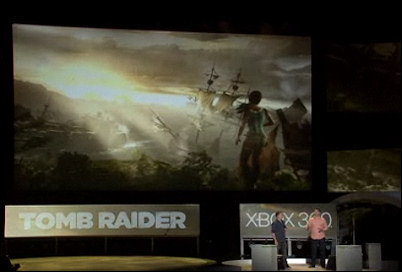
"Seriously, we have no goddamned idea what number we're on now. Just start over."
Next were two new games, both based on existing brands and both for toddlers (Disneyland Adventure -- a Kinect enabled game that will let your toddler tour Disneyland without you having to spring for a ticket -- and a Sesame Street game starring Elmo).
Then, finally, we reached the big announcement at the end (they always save cliffhanger "megaton" announcements for last, Steve Jobs-style) and they came out to announce that they were introducing "the beginning of a new trilogy." Yes! Something fucking new!
Then this came up on the screen:

Confused? So was the audience. By "new trilogy" they actually meant that there would be three more Halo games. Did I mention that Halo 4 is actually Halo 7? Which means they intend to put out at least nine Halo games before they're done? Oh, wait, they also announced they were doing a gritty reboot of the decade-old Halo to make it an even 10.
Sony came up next and announced a sequel, another sequel and then a reboot. After that it went sequel, sequel, special edition of a sequel, new FPS, sequel, new FPS, sequel, special edition of a sequel, new game based on an existing property (Star Trek), sequel, sequel and sequel. Then they introduced a new system (the PS Vita) and showed it off with four sequels.
Nintendo's list went: sequel, sequel, sequel, sequel, sequel, sequel, sequel, sequel, sequel and (hold on, let me double check here) a sequel. And you already know what those were, even if you haven't played a video game in 15 years: Mario Kart, Mario World, Luigi, Zelda, Kirby, etc. Then they showed off their new system (the Wii U) with a demo reel promising that some day it would allow us to play sequels like Arkham Asylum 2, Darksiders II and Ninja Gaiden 3.
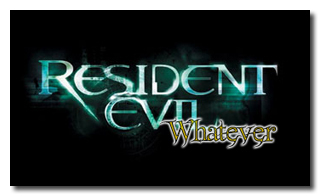
Think about the situation with Hollywood -- movies are expensive as hell, so studios are scared to death of taking creative risks and thus we get a new Transformers movie every two years. But now take that and multiply it times five, and you have the situation with video games. Literally. A video game costs five times as much as a movie ticket, and therefore customers are five times as cautious about experimenting with unfamiliar games that might wind up being shit. Game publishers respond accordingly.
And yes, we gamers are ultimately to blame. We don't even perceive how incredibly narrow our range of choices has gotten. For instance, every single gaming forum on the Internet right now is hosting at least one passionate discussion about which is better, Modern Warfare 3 or Battlefield 3.
Seriously, they almost come to blows over it. As a reminder, here are the two games, back to back:
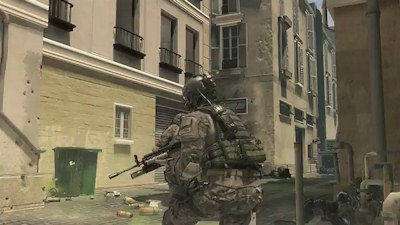

I'm not going to even tell you which one is which.
This here is why all of the innovation in games seems to be about going backward, simplifying instead of pushing the experience further. They are trying to lower the barrier of entry for gaming as a hobby, because they don't know where else to go with it. So I guess what I'm saying is that one thing is becoming clear ...
There is No Real Vision for the Future

As Epic Games president Mike Capps says, nobody has any goddamned idea what's coming next. Epic Games, by the way, are the guys behind the Gears of War series:
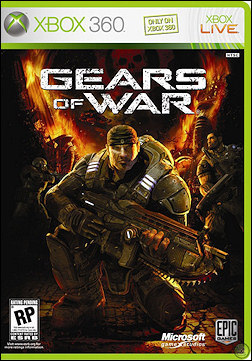
Yes, that's a chainsaw on his machine gun. See, the reason Nintendo's next console promises to use state-of-the-art horsepower to let you play iPhone games ...
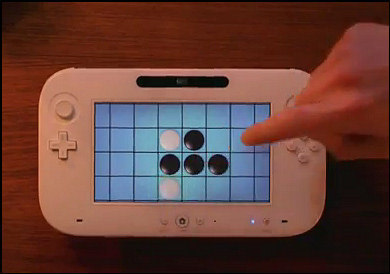
... is because for most people these days, gaming looks like this:

Simple games, played on your phone or tablet computer, downloaded from the app store. They cost a dollar, or nothing at all. They can be played on a machine that the customer already owns -- no additional investment needed. They can be developed quickly and with a small team (or, you know, one guy). As the man from Epic says, "If there's anything that's killing us, it's dollar apps." Meanwhile, the most profitable game company right now isn't Activision/Blizzard or Nintendo or EA, it's Zynga, the makers of Farmville.
So what the hell are you supposed to do when you're trying to convince those customers to drop $400 on a game machine with all of the accessories (extra controllers, peripherals, online subscriptions) plus $60 for each game? The answer is game makers have no fucking idea.
It used to be so simple. For the first 25 or so years of video game consoles, the "next big thing" was to just make the games look more like real life. For instance, I mentioned earlier how long we've been waiting for a good Star Wars lightsaber game. Well, in 1983, lightsabers looked like this:
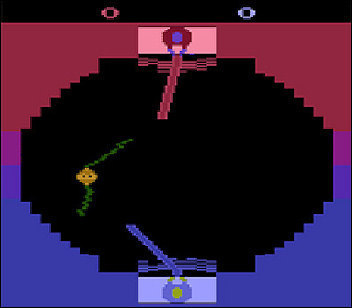
That is, like two erect pixel dicks about to fuck a snake wearing a George Lucas Halloween mask. But every player knew what it was trying to look like, because we had all seen lightsabers before. It was supposed to look like this:
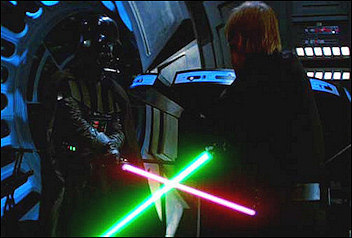
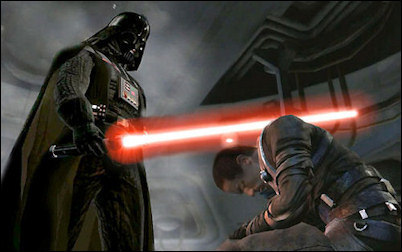

NO. WHY DID YOU HAVE TO REMIND ME OF THIS?
Sony spent a lot of time at E3 talking about 3D gaming, and they kind of don't have a choice since the TV side of their company has invested so heavily in 3D sets. Now, I don't know what percentage of people can't play 3D games without getting a splitting headache (there are lots of reports, but no studies yet), but I know I made it about three minutes before I had to take the glasses off. Nintendo's portable 3DS managed glasses-free 3D, but you have to hold it at an exact fixed distance from your face at all times, or else the screen becomes a blurry mess and Nintendo was sure to give users the option of turning the 3D off. Oh, and it also causes headaches. This, by the way, is part of the reason why 3D movie ticket sales are falling and investors are trying to get some theater chains to scrap it.
"Fine," you're probably saying, "then what does the future hold for gaming, Guy Who Didn't Realize Until the Final Boss That Resident Evil 4 Had a 'Run' Button?" Well, here's the thing ...
We Still Don't Know What a "Game" Is

Ask yourself: How does it make sense that earlier we had the guy from Epic -- someone who makes $50 million budget games about space marines chainsawing aliens in half -- complaining that his business was being stolen by iPhone Tetris and Angry Birds? That's like a cattle rancher saying all of his business is being eaten up by cotton candy manufacturers. The only thing they have in common is that they can both be consumed.
Now ask yourself why those Modern Warfare games essentially have two utterly different games on the same disc -- one is a five-hour-long action movie (the single player campaign), the other is a competitive electronic sport (the multiplayer).
In both cases, it's because we're combining a bunch of completely different experiences and art forms and calling them all "video games."

Though the ability to snipe in Farmville would have been an awesome feature.
That hasn't made sense for a lot of years now. The future is that what we're now calling video games will cease to be a thing, and will break up into several different art forms, each with their own medium. We'll have true "games" where we perform simple tasks to kill a few minutes or get a high score (Angry Birds, etc) that will cost a dollar or two. We'll have interactive stories that are less about "winning" and "losing" and more about relating to characters and following drama (LA Noire, Heavy Rain) and they will not be called games, because it never made sense to call them that.

Gaming has become a proverbial cotton candy cow.
Those titles should be priced like what they are: long rendered movies with some interactivity thrown in as a bonus, that the audience will only sit through once. Then we'll have competitive multiplayer games as their own thing -- those will probably be a subscription model, with no $60 game up front but with an infinite amount of shit for the most obsessed to blow their disposable income on.
The industry will realize those all need their own business models. And that would hopefully relieve some of this pressure to keep doing things the old way. They'll be free to stop trying to cram repetitive game elements (like fetch quests) into our interactive movies. They can stop thinking a series like Fable will work on the fucking Kinect. Console makers can stop imagining that people will some day be willing to pay more than a dollar for Monkey Shit Tower Defense.

But we would have no trouble paying that dollar.
And then, maybe somebody will invent a lightsaber game that fucking works.
Until that happy day, you'll have to be satisfied with Cracked's new Adventures in Jedi School mini-series.
For more on gaming, check out 12 Great Video Games With Ridiculous Premises and The 7 Commandments All Video Games Should Obey.
Agents of Cracked is up for a Telly Award! If you love DOB and Swaim as much as the staggering amount of nude fan pics they receive says you do, then vote for them here and here.
And don't forget to follow us on Facebook and Twitter to get sexy, sexy jokes sent straight to your news feed.
Do you have an idea in mind that would make a great article? Then sign up for our writers workshop! Do you possess expert skills in image creation and manipulation? Mediocre? Even rudimentary? Are you frightened by MS Paint and simply have a funny idea? You can create an infograpic and you could be on the front page of Cracked.com tomorrow!